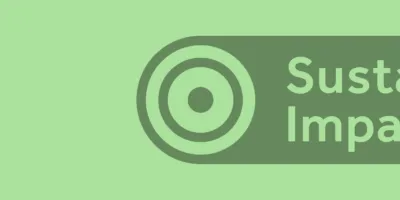26 Sep 2023
- Financial Services
Quick wins can be big wins

You can make big improvements to the customer experience by making small changes – if you know which changes to make.
-
Stu Charlton
Strategic Director

Every few months an organisation that’s in a pickle asks us for help. They’re often surprised by how quickly we can unpickle things by making a few choice changes to the user experience. Sometimes, they’re surprised by the size of the prize too.
It suggests that a lot of other businesses are missing a trick, especially in Financial Services.
The Head of Insight at a big-name insurer told me recently that her execs are obsessed with placing big bets on shiny new tech. Yet, she said, they could increase retention and revenue sooner by making their communications easier for customers to understand.
Maybe it would bag the execs their bonuses too. But it’s not going to happen there any time soon because it sounds boring.
Quick wins don’t generally get the pulse racing.
We worked with a bank that was beginning its third attempt at a cloud migration. Older and wiser, this time it planned a meticulous ‘lift and shift’ – minimising variables, uncertainty, and complexity by putting all other bright ideas on hold.
It’s solid logic, but it spooked the Product Director. Future-proofing their systems would take years and go unseen by customers and shareholders. Meanwhile, the race for market share would continue. During the firm’s extended pitstop its competitors would rack up laps, build a daunting lead, and grab all the glory.
Happily, we convinced the ExCo that there were some changes we could make that were so cheap and straightforward that they wouldn’t scupper their migration plan. They sanctioned them without much expectation, to appease the frustrated Product Director.
What were these updates? Words. We rewrote the copy in the bank’s marketing journeys, to make their products easier to understand.
There was a surprising reward for making these technically inexpensive, low risk, apparently boring changes: customer satisfaction rose, complaints and customer support costs dropped.
Yet the Product Director wouldn’t have bothered if he’d had more exciting options. Can you explain why?
Maybe some people conflate ‘quick’ with ‘small’. Others think, probably correctly, that you’re more likely to get promoted by creating bold visions.

Others see consumer understanding purely as a compliance matter. But there’s another reason: the problem is tricky to see.
It’s hard for any of us to remember what it’s like to not be an expert in our own industry, so we easily fall into the trap of thinking that our customers know what we know. We assume they understand concepts that are obvious to us because we talk about them every day. Doesn’t everyone know the difference between clean and dirty prices, insurance and assurance, index equities and asset equities, CFDs and ETFs, Bacs and CHAPS?
They don’t, but we think they do. That’s the curse of knowledge.
User researchers are highly immune to this curse because like modern-day milkmaids they’re inoculated by their day jobs. They see how the industry looks through customers’ eyes. They see the widespread confusion that busy execs tend to miss.
So if you want to alert your execs to the surprising benefit of making small text changes then give them a dose of user research.
In a big company, you sometimes lose your focus on the customer; you think you know how things should work because you’re a big player. cxpartners bring you down to earth and show you reality.
The biggest challenge is getting people to sup medicine that they don’t suppose they need. We’ve found that it pays to appeal to the two things that execs care about most:
Risk
If you’re in FS, the Consumer Duty will be high on your board’s agenda right now. The FCA expects accountable senior managers to model customer-focused behaviour. That includes seeking to understand how customers really experience your service.
Your team may have done a thorough review already. But firms can’t be seen to mark their own homework so – as regulatory supervision begins – it could be a good moment to bring in a third party for a set-piece evaluation, such as customer-centred assurance. It’s an independent, rigorous review of your customer journeys to bolster your firm’s conversations with the FCA.
The bonus? It reveals customer needs, so customer-centred assurance reliably identifies opportunities for commercial improvements too.
You have delivered rich client insight data that puts us way above our peers and made it really easy for us to align future changes to client needs.
Reward
If the explicit pursuit of revenue or profit are most likely to attract exec eyeballs, then here’s an alternative proposition.
We deliver conversion-focused one-day research labs to market-leading orgs across EMEA. The format was honed through our partnership with Google and is designed to energise busy stakeholders.
The whole team really enjoyed the workshop and we’re all blown away by how well the format worked.
Participating brands often see a double-digit uplift when they implement ideas agreed in the lab.

